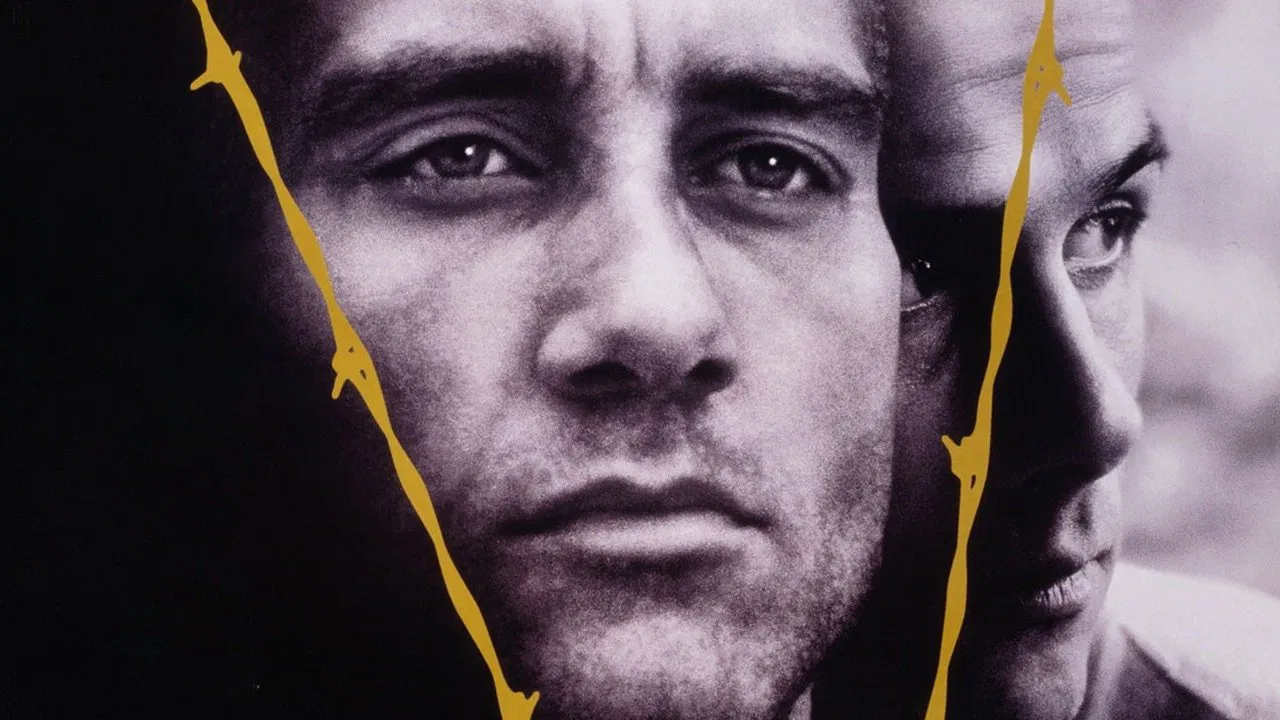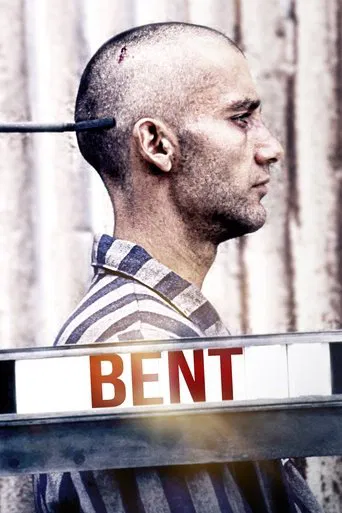

I watched this in two stages: first half, late at night; second half the following evening. I love historical stories set in Europe during WWII. I was intrigued by the first part, even though it was quite disturbing, however, the second part between the two principles, the real heart of the story, just left me completely cold. I cared nothing for either of them. I don't even know what to say about Max, but if I did, there wouldn't be much good in it. Horst was just downright annoying and nag. I found their verbal sexual interaction boring and pretentious; I was sorry it was repeated later in the film. The action was so staid in this ridiculous situation they were in, that I was relieved when one of them was killed. Maybe you're supposed to feel that way. I don't doubt that such situations really happened, senseless as the Nazis were, but I just don't think it made for interesting story telling. Honestly, the only character I felt anything for was Rudy; I was sorry he died so early on. Just my opinion.
... View MoreGay lust/love and decadence in Berlin, Jews-Nazis-concentration camps - all intriguing elements, a good basis for developing a tense narration where different aspects of human nature move to the surface. The story can be roughly divided into 2 parts, different by mood - before arrest and after it. Although the 1st one has menacing circumference as well, events in the secretive club (including nice performance by Mick Jagger) are in total contrast with miseries in Dachau where gays and Jews were the lowest strata, suffering most hardships. The 2nd part includes the strongest scenes of the film where the 2 protagonists (splendidly performed by Clive Owen and Lothaire Bluteau) have to stand attention... The ending was, unfortunately, predictable, and not all scenes have equal significance for the progression of the script. Nevertheless, unless you are uncomfortable with "different" approaches on "known" events, then Bent is definitely for you; plus I think that Clive Owen should be used more in profound drama films - he did a great job here.
... View MoreAdapting stage plays to the screen is a process fraught with all sorts of dangers; decisions constantly must be made as to how faithful to make the adaptation. Sometimes a very courageous director will simply give the film audience basically the same thing the stage audience saw (as with THE BOYS IN THE BAND or THE BAD SEED); others will "open up" the play to make it more cinematic; the results there tend to vary from brilliant (CABARET, for example) to awful (A CHORUS LINE).Director Sean Mathias's film version of Martin Sherman's landmark play BENT is a harrowing look at the fate of the Gay community under Nazism told through the eyes of Max (Clive Owen), a promiscuous habitué of the boy bars who is arrested along with his boyfriend Rudy (Brian Webber) the morning after bringing home a member of the SA (Nikolaj Coaster-Waldau). On the way to Dachau Max is forced to beat Rudy to death by the brutal SS guards to prove his claim that he is not homosexual; Max has decided that a yellow star (Jewish) would be less dangerous a marker than a pink triangle.In the early scenes of the film we are given a look at the Berlin club scene; Mick Jagger has a stunning cameo as Greta, a performer at the club who knows what's coming and makes an abortive attempt to warn Max, but Max won't listen; neither will he listen to his uncle Freddie (Ian McKellen), an older and more discreet man who satisfies his desires in secret with rent boys. Freddie manages to get faked papers for Max but he will not leave without Rudy, and tragically, this decision spells doom ultimately for both of them.The second half of the story focuses on Max at Dachau; he is paired with another Gay prisoner, Horst (Lothaire Bluteau), and together they are made to move heavy stones from one pile to another and back again, and again, and again. Under the incredibly dehumanizing circumstances, these two men somehow manage to fall in love; and the result is one of the most remarkable and painful love stories ever put on film.Unfortunately, you have to wait nearly an hour to get to the story of Max and Horst, which is the segment of the film that has all the power and impact of Sherman's play. The first half, despite cutting out huge chunks of dialogue, seems interminable and lacks energy; one feels that had they kept the play's first half intact it would have taken about half an hour less to get to Dachau, which is where the beating heart of the story is located.The acting is wonderful, though. Clive Owen, brought in to fill Richard Gere's shoes (Gere had played the role on Broadway but was doing another film at the time), displays a haunting vulnerability as the terrified Max, and Lothaire Bluteau's Horst is in many ways the central figure of the piece, as he stands for what happens when love and hate collide. Bluteau bares his soul in probably the best performance in the picture, though he is in very good company.I give this one a 6 because what it does well, it does exceptionally well. It's a pity that the first half is so dull; the original was anything but.
... View MoreThe movie is gorgeous! I think. I especially like the part the two guys stood there and make love to each without touching and looking at each other...touching your emotion actually...the desperate suicide committed by the man was unavoidable and sad...'yes, I love you; yes'...a confirmation of love is more than thousands of words...nice movie! 10 lines comments? wow, too critical for a good movie review...the Gettysburg address by Abraham Lincoln was short but convincible!powerful.The movie is gorgeous! I think. I especially like the part the two guys stood there and make love to each without touching and looking at each other...touching your emotion actually...the desperate suicide committed by the man was unavoidable and sad...'yes, I love you; yes'...a confirmation of love is more than thousands of words...nice movie!
... View More